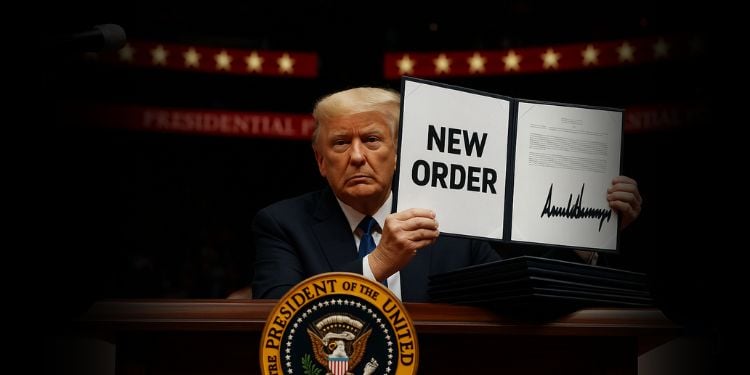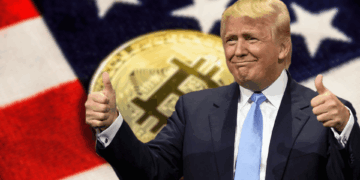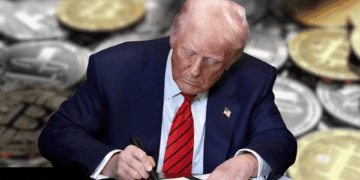- Trump signed an executive order banning the use of “reputational risk” in bank oversight, aiming to stop politically or religiously motivated debanking.
- The SBA, Treasury, and DOJ are tasked with restoring affected accounts, enforcing compliance, and investigating religious discrimination cases.
- The order also protects crypto firms by prohibiting regulators from using vague risk claims to deny banking or payment services.
President Donald Trump has just signed an executive order aimed at ending what he calls politically and religiously motivated financial discrimination. In plain terms? No more banks being pushed by federal agencies to cut off services because of ideology. That includes crypto companies and conservative-linked businesses that, according to supporters, have been quietly blacklisted in recent years.
Killing “Reputational Risk” as a Regulatory Weapon
At the heart of the order is one phrase: reputational risk. Until now, agencies like the Federal Reserve and FDIC could lean on it when pressuring banks to drop clients tied to controversial causes. The problem, critics say, is that it’s vague enough to mean “we don’t like how you look in the headlines.” Trump’s order wipes it from the rulebook.
Regulators now have to strip subjective terms from manuals and guidance. Bank decisions must be based on clear, objective financial risk—no political or ideological filters. Agencies also have to go back, review older policies, and identify where ideological screening happened. If they find violations? Expect fines, consent decrees, or other corrective actions.
SBA, Treasury, and DOJ Brought Into the Fight
The Small Business Administration is getting a specific assignment: make sure banks restore accounts for law-abiding customers who were denied service over politics or religion. The Treasury Secretary must draw up a long-term plan to keep politicized banking out of the system—working alongside economic policy teams to figure out new legislative or regulatory tools.
There’s also a discrimination audit baked into the order. Agencies must comb through complaint logs and supervisory records for religious bias. Any confirmed cases will be sent straight to the Department of Justice for follow-up—meaning this isn’t just “administrative reform,” it’s potentially criminal.
Crypto Gets an Explicit Green Light
One of the biggest winners here is the digital asset industry. The order bans regulators from using vague justifications to deny accounts or payment services to crypto firms—a practice many say was reminiscent of Operation Chokepoint. In recent years, companies have complained about being “debanked” without explanation, losing access to fiat rails overnight.
By removing the tools regulators once used to freeze out the sector, the order marks a big shift in tone from Washington toward crypto. Lawmakers have been pressing for this kind of change, and Trump’s move both backs their push and cuts off future attempts to revive those tactics.















